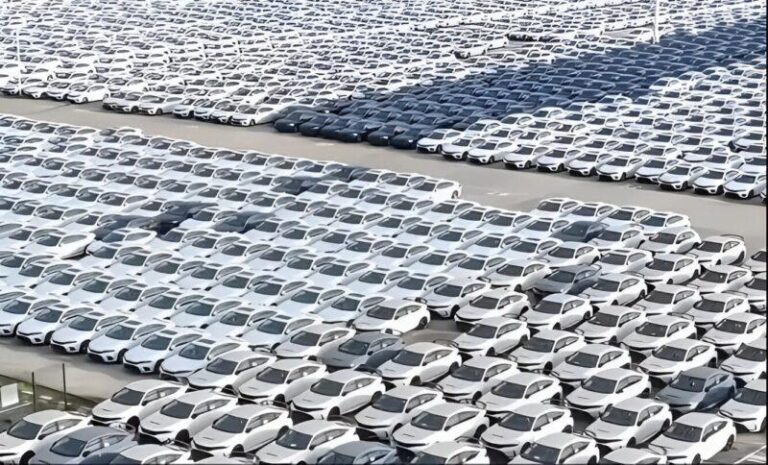In an exclusive report, Reuters reveals how several local Chinese governments are actively promoting “zero-mileage” used car exports-vehicles that have never been driven but are registered and shipped abroad as second-hand cars. This practice, aimed at boosting local economic data, is inflating official used car sales and growth figures, raising questions about the accuracy of China’s automotive market statistics and the underlying motives of regional authorities. The investigation sheds light on the growing trend and its implications for both domestic policy and the global used car industry.
Exclusive Local Chinese Governments Drive Zero Mileage Used Car Exports to Boost Sales Figures
Several local Chinese governments have been identified as actively facilitating the export of “zero-mileage” used vehicles-essentially cars that have barely been driven but are classified as second-hand-to foreign markets. This strategy, reportedly encouraged through subsidies and streamlined export incentives, has resulted in a surge of export volumes that experts say artificially boosts official sales and economic growth metrics. Critics argue these transactions not only distort the true demand for used cars domestically but also raise concerns about regulatory loopholes being exploited to meet sales targets.
Key factors contributing to this trend include:
- Government-issued incentives tied to export performance.
- Minimal usage of vehicles prior to export, challenging conventional definitions of “used.”
- Targeting emerging overseas markets with high demand for affordable vehicles.
| Province | Zero-Mileage Used Car Exports (Units) | Export Growth (YoY %) |
|---|---|---|
| Guangdong | 12,450 | 32% |
| Jiangsu | 8,900 | 28% |
| Zhejiang | 6,700 | 25% |
Investigating the Impact of Artificially Inflated Growth on China’s Auto Market and Global Trade
Recent investigations have uncovered a growing trend among several local Chinese governments to artificially boost auto sales figures by promoting the export of “zero-mileage” used vehicles. These cars, often brand new or barely driven, are sent overseas as used exports, creating an illusion of robust market demand domestically. This practice not only distorts China’s reported economic growth metrics in the automotive sector but also raises questions about the transparency of local governance and the true health of the industry. By channeling excess inventory through these exports, officials manage to report inflated sales, satisfying top-down performance targets despite actual consumption slowing within the domestic market.
The repercussions extend beyond China’s borders, impacting global trade dynamics and used car markets worldwide. Export destinations, particularly in Southeast Asia and Africa, have seen a sudden surge in Chinese used vehicle imports, sometimes overwhelming local markets with barely used cars priced competitively against local alternatives. This influx has sparked tensions among local dealers and governments, who argue that the policy undermines local auto industries and destabilizes market pricing. Industry analysts warn that if unchecked, this artificially stimulated demand risks long-term market imbalances both within China and internationally.
- Local governments leverage used car exports to meet sales targets.
- “Zero-mileage” used cars blur lines between new and used with minimal usage.
- Export surge impacts Southeast Asian and African secondary car markets.
- Potential distortion of global automotive trade and pricing structures.
| Region | Used Car Imports 2023 | Growth Rate (%) |
|---|---|---|
| Southeast Asia | 450,000 units | +38% |
| Africa | 380,000 units | +42% |
| Latin America | 150,000 units | +15% |
Experts Call for Stricter Oversight and Transparency in Used Vehicle Export Reporting Practices
Industry experts are raising alarms over reports that some local Chinese governments have been actively promoting the export of ‘zero-mileage’ used vehicles. This practice, which involves shipping nearly new or unsold cars directly to overseas markets, artificially boosts sales figures and economic growth indicators. Analysts warn that such skewed data not only misrepresents the health of the domestic automotive sector but also undermines fair market competition in importing countries.
Calls for reform are intensifying among watchdogs who emphasize the need for robust oversight and enhanced transparency in export reporting. Suggestions include:
- Standardized auditing procedures for used vehicle export data
- Mandatory disclosure of vehicle mileage and condition in export documents
- Stronger penalties for misreporting or inflating sales volumes
| Reported Metric | Potential Impact | Recommended Action |
|---|---|---|
| Export Volume | Inflated economic growth | Third-party verification |
| Vehicle Condition | Misleading quality perception | Mandatory mileage disclosures |
| Sales Figures | Distorted market data | Regular audits |
In Retrospect
As scrutiny mounts over the methods used by local Chinese governments to boost used car export figures through so-called “zero-mileage” sales, questions arise about the accuracy of reported growth and the long-term implications for market transparency. While these practices may offer short-term statistical gains, industry experts warn they could distort the true health of the sector and erode trust among international buyers. As regulators and stakeholders digest the revelations highlighted by Reuters, further investigation and policy responses may be needed to ensure that the numbers driving China’s automotive export ambitions reflect genuine market dynamics.




